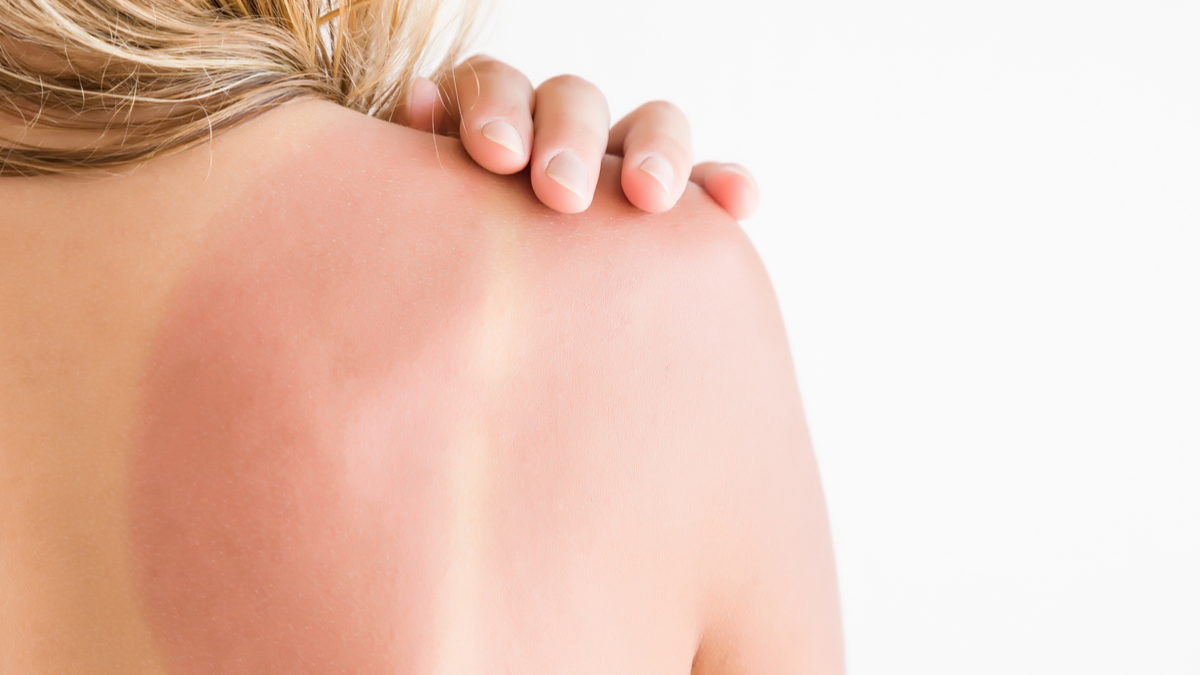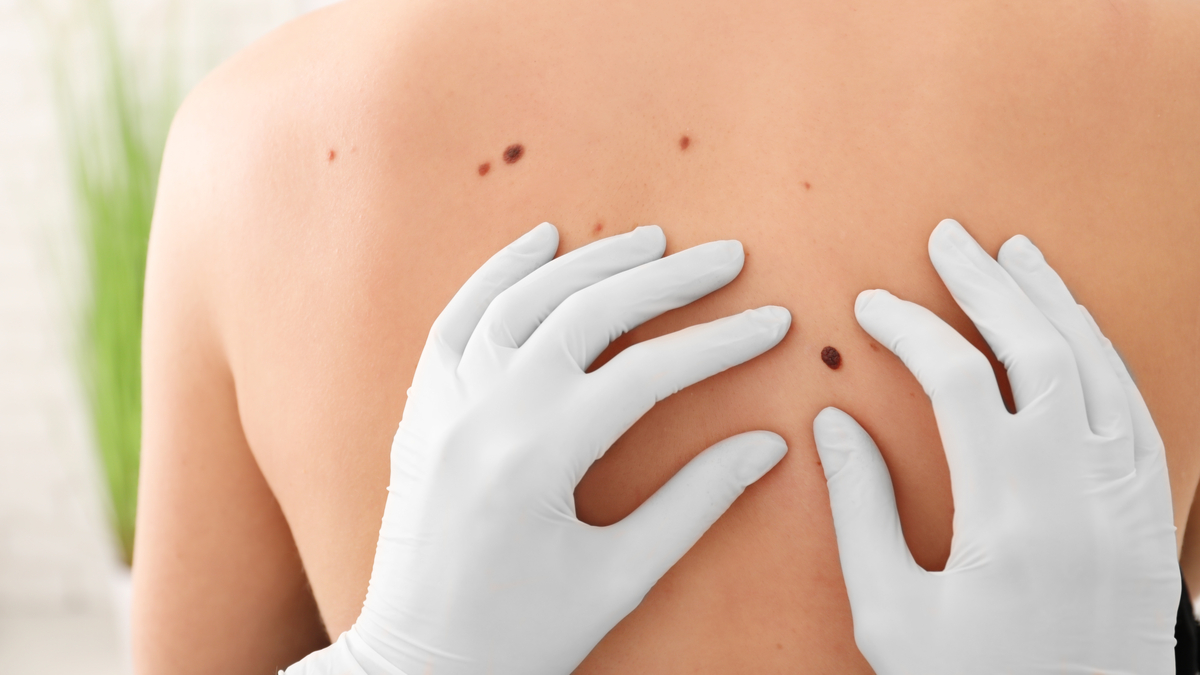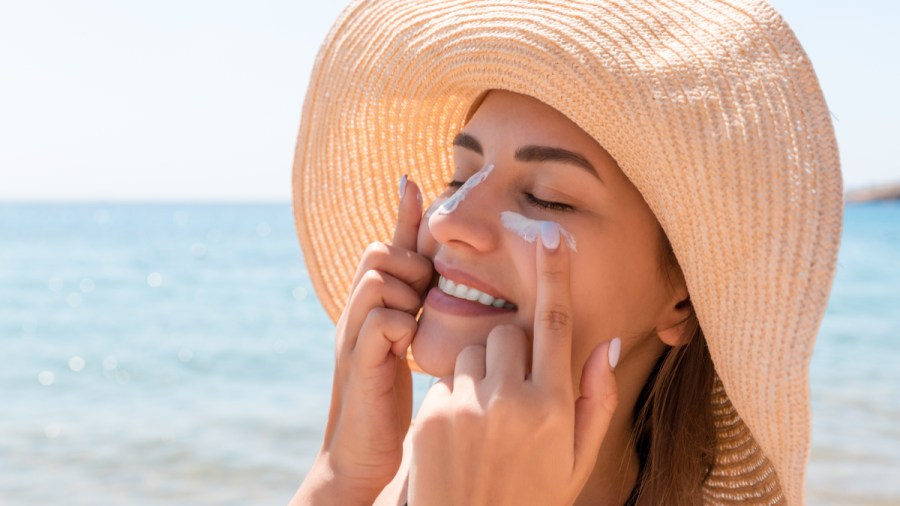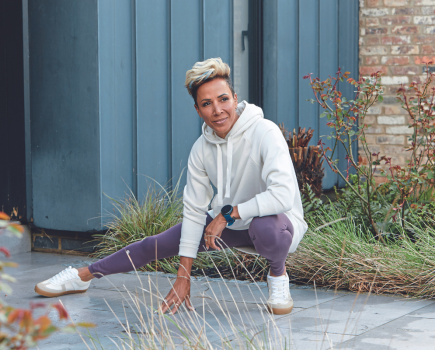Concerned about a suspicious mole, last year’s sunburn, or a family history of skin cancer? We speak to Jo Stoddart, a skin cancer specialist at Bupa UK, who shares her tips on checking moles, spotting melanoma signs, and protecting your skin from the sun…
We all undoubtedly need a healthy level of UV exposure in our lives. Not only does UBV hitting your skin cause the production of the hormone vitamin D (yes, technically it’s a hormone), which is crucial for immunity and a host of other bodily functions, but UV light also triggers happy chemicals to be released into your skin and bloodstream. The sun helps you relax, as you’ll know only too well if you’re currently stretched out on a sun lounger on holiday! However, as with most things in life, too much of a good thing ends up not being so good. And too much sun causes skin to burn, which is bad news–especially when it comes to malignant melanoma, aka skin cancer. This is why it’s good to turn to sunscreen if you’re going to be outdoors for along period of time.
So, with summer often stretching out into September, it’s worth revisiting the sunscreen you’re using to make sure it’s doing a good job. ‘It’s difficult to avoid the sun entirely, and it does have its benefits, including getting that important vitamin D dose,’ says Jo Stoddart, cancer specialist at Bupa UK. ‘However, it’s vital to be aware of the potential dangers. In fact, taking care in the sun could prevent most cases of melanoma.’

What are the causes of skin cancer?
Melanoma is a type of cancer that starts in the pigment cells in your skin – called melanocytes – and can spread to other parts of your body. Thought to be mainly due to sun exposure, melanoma is increasing and unfortunately in some cases can be life-threatening. ‘There are more than 15,000 new cases of melanoma diagnosed every year in the UK. It’s the fifth most common cancer in the UK, with rates having more than doubled since the early 1990s,’ says Jo. While the increase has now slowed down, rates of melanoma are still expected to rise over the next 10 years. Certain genetic factors increase your risk of developing melanoma. This includes having a larger number of moles or moles that are atypical. Additionally, if you have pale skin, red or blonde hair and blue or green eyes, you are at a greater risk than those with dark features.
‘Family history is also important when it comes to your risk, with it playing a part in around one in 10 cases of melanoma,’ adds Jo. Excessive exposure to sunlight or UV radiation from sunbeds is the main environmental factor that can cause melanoma. ‘If you have had severe sunburn or intense exposure to the sun in the past, particularly in childhood, then you are also at a higher risk,’ she says.
What are the signs of melanoma?
Melanoma may start in an existing mole on your skin or it may start on normal skin, creating a new, abnormal mole. There are key signs to look out for when checking your moles, which you should do on a monthly basis. Jo suggests employing the ABCDE checklist (below) when checking. This should flag up the key signs that your mole could be a melanoma one. If you notice that something isn’t quite right, such as a new, painful or changing mole or freckle, it’s always a good idea to speak to a medical professional. ‘When it comes to conditions such as cancer, early diagnosis can have a positive impact on the long-term prognosis and, ultimately, survival rates. It may be nothing, but it’s always important to check, if only to give yourself peace of mind,’ says Jo.

Mole checklist: When should I be worried about a mole?
Use the ABCDE checklist when checking your moles:
- A – asymmetry – one half of the mole looks different to the other.
- B – border irregularity – the edges are uneven or jagged.
- C – colour variability – the mole is a mixture of different colours.
- D – diameter – the mole is bigger than 6mm across.
- E – evolution – the mole has changed in size, shape or colour.
Get your moles checked! If you’re worried about a particular mole or simply after some reassurance, get yours checked at The Mole Clinic, which is being launched in 36 sk:n clinics nationwide. The mole mapping service costs £145. Visit sknclinics.co.uk for more details.
6 sun safety tips to protect your skin from damage
Skin cancer specialist Jo Stoddart shares her top tips for staying safe in the sun…
- Apply at least two tablespoons of sun cream if you’re covering your whole body to give yourself full coverage.
- Cover up with suitable clothing if you’re spending an extended amount of time in the sun. Use a hat and UV protective sunglasses.
- Avoid the sun between 11am and 3pm when it’s most intense and can cause the most damage. Always wear sunscreen with a high factor.
- Go for sun cream with an SPF of at least 30 if you’re out in strong sunlight and a high UVA protection of at least 4 stars. Check your sunscreen isn’t past its expiry date. Throw it out as well if it’s open and older than two years.
- Never spend longer in the sun than you would if you weren’t wearing any sun lotion at all. Most people are surprised to hear this, as they think they can stay out for extended periods of time just because they’re wearing sunscreen.
- If you do get burnt, cool your skin with a cold shower. Moisturise the affected areas with aftersun or aloe vera. Drink plenty of water to rehydrate and limit the risk of sunstroke. It usually takes around seven days for sunburn to fully heal. To limit further damage, cover up the affected areas, avoiding direct contact with sunlight, which can further irritate skin, even through windows.

If you’re concerned, always seek advice from a medical professional.
What to do if you’re concerned: The Cancer Direct Access service is the UK’s most comprehensive self-referral service. It covers the most common cancers, including skin. If you experience a worrying symptom, you can be referred to a specialist immediately, without the need for a GP referral.







